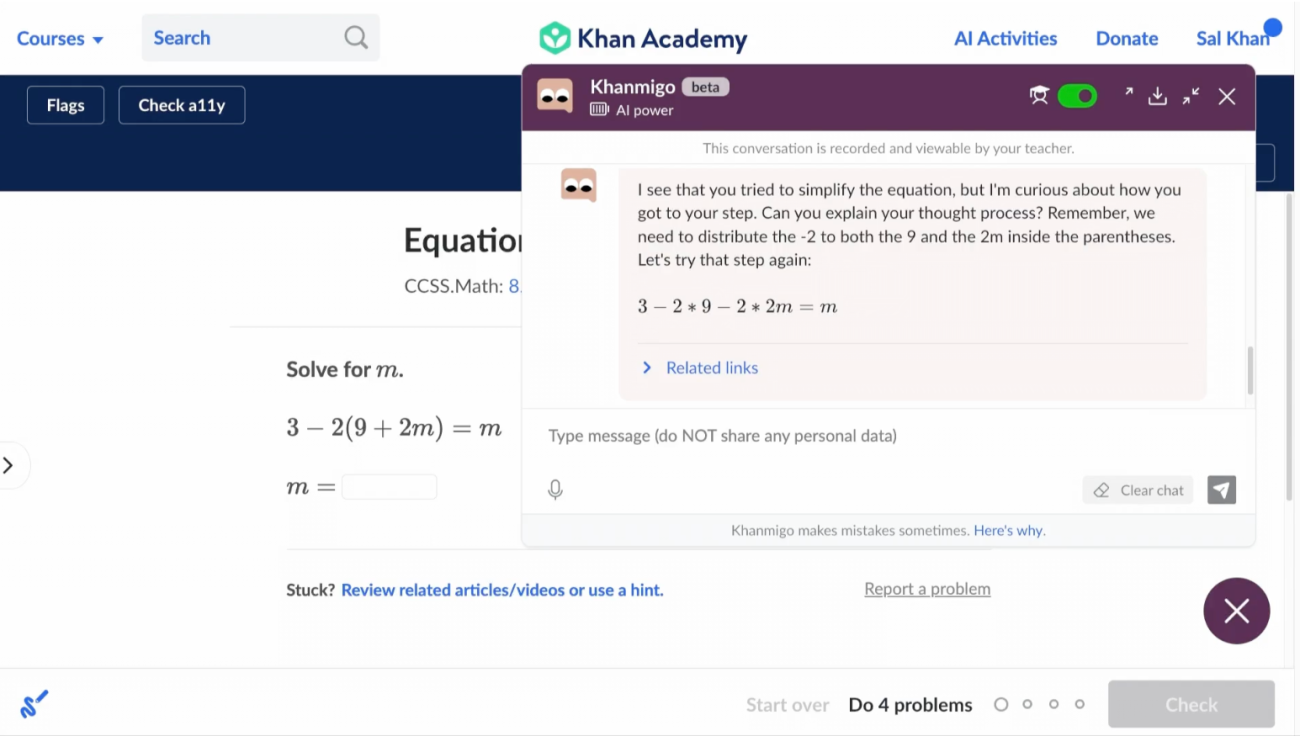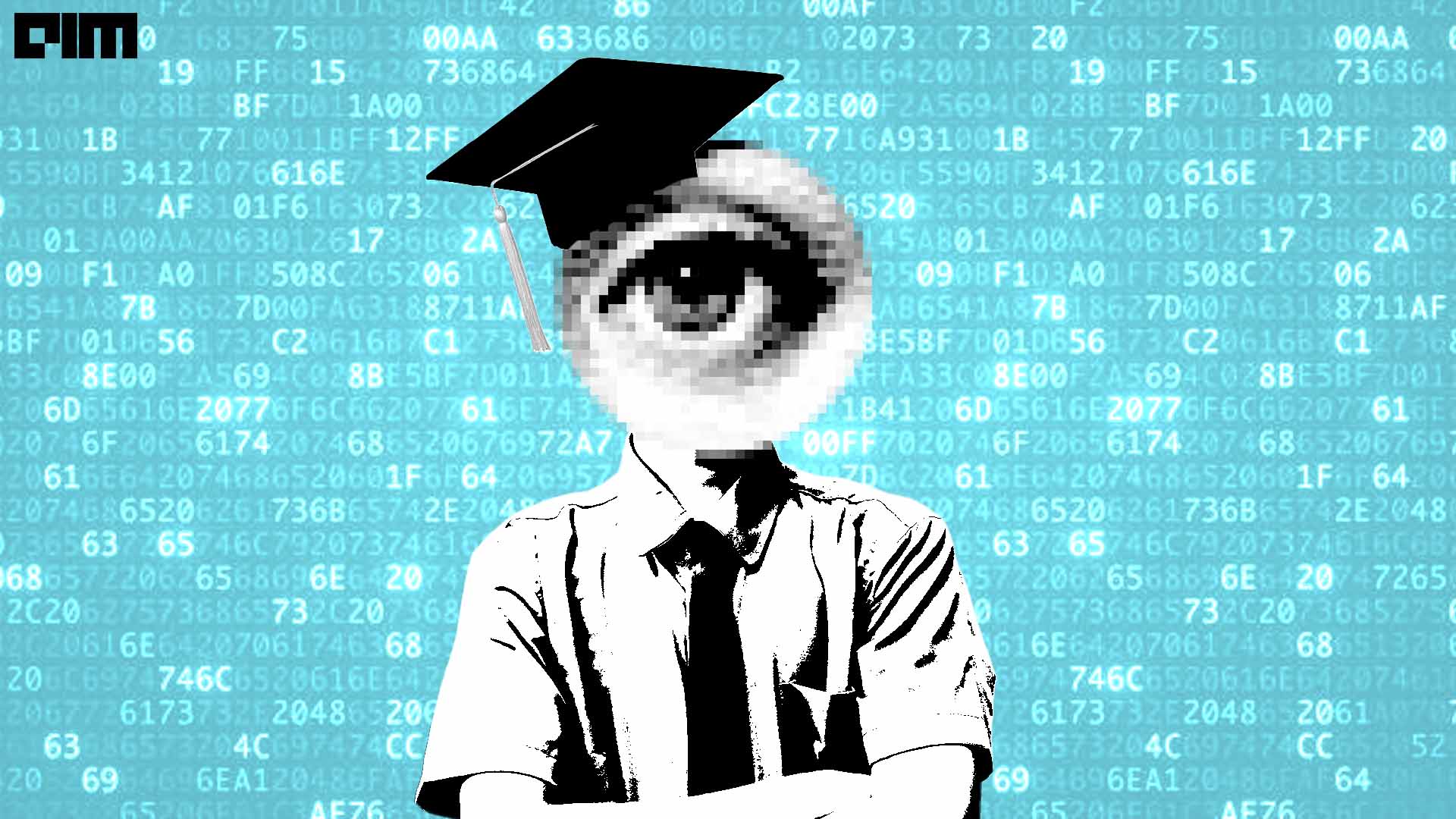|
Listen to this story
|
The Edtech segment has long been mulling over the potential impact of generative AI technologies like ChatGPT on learners. It appears that this wait is now having negative consequences. Reports indicate that US-listed educational firms, such as Chegg and Pearson, experienced a significant loss of approximately $1 billion (£803 million) in market capitalization.
This came after Chegg, a company that provides various educational services, including online tutoring, textbook rentals, and homework help, issued a trading update. The update stated that the company’s business has been adversely affected by the increasing use of generative AI. While the first-quarter results were relatively unaffected by this trend, the impact has become more noticeable in the past two months.
“Since March we saw a significant spike in the student interest in ChatGPT,” Chegg said. “We now believe it’s having an impact on our new customer growth rate.”
Currently, educational service providers are faced with the choice between incorporating AI or risking obsolescence. Either they integrate AI into their services or risk being left behind quickly. However, these ed-tech providers are treading carefully given the possibility of biased or erroneous results produced by current AI models.
“Efforts have to be made to regulate the use of the tool and ensure that it is used to enhance the learning experience without hindering cognitive development,” said Girish Singhania, CEO, EduBridge, who believes that using GPT-4 could potentially hinder cognitive development.
2 Sigma Problem
In a recent TED talk, Khan Academy’s Salman Khan began his presentation with a particular problem that was initially observed by Educational Psychologist Benjamin Bloom. Bloom compared the effectiveness of one-to-one tutoring with that of traditional classroom instruction, and found that the average student in a one-to-one tutoring situation performed two standard deviations, or “2 sigma,” better than the average student in a traditional classroom setting.

Khan highlighted that the reason this perfectly normal observation became a “problem” was because there was a question of how to actually enable this for everyone in an economic way. It appears that generative AI solutions may be a step toward achieving this.
Khan Academy themselves recently announced a GPT-4-powered AI tutor and classroom assistant called Khanmigo. The non-profit organisation believes GPT-4 can be leveraged to provide tailored learning experiences to students depending on their learning and understanding capabilities.
During his talk, Khan presented several examples of how GPTs can be fine-tuned to serve as genuine tutors, capable of providing assistance to individuals rather than simply providing answers to their queries. For instance, for a particular mathematical problem, the chatbot will guide the student on how to approach the solution. Using a conversational tone, it will inquire about the next step the student thinks is necessary to solve the problem. If the student’s response is incorrect, instead of providing the correct answer, the chatbot will ask what led them to that step.

Another example he highlighted is that for a task that a learner is performing on the platform, the chatbot is able to grasp the context of the question being asked. For instance, if a code fails to execute its intended task, it can provide guidance on where exactly the learner is going wrong, and provide assistance accordingly.
OpenAI’s Andrej Karapthy also reflected on the talk saying that examples of the concept of fine-tuning GPTs into Socratic tutors is not a new one, and requires data prompt engineering, fine tuning, data collection, and iteration.
However, this flashy demo tells only half the story. Richard Tong, Chair of IEEE Artificial Intelligence, recently took to LinkedIn to note that while Khanmigo is effective at guiding the tutoring process, it does not guarantee accurate answers. “Even for basic elementary school math, I have encountered incorrect answers. For more advanced math or physics problem that requires more computation, Khanmigo is even worse,” he writes.
How Indian Ed-tech is Tackling ChatGPT
But, this discussion does provoke the question: How are Indian educational service providers going to survive the AI threat?
Gurugram-based company Doubtnut, for instance, is an education platform that enables users to ask study questions and provides video solutions to it. The company recently announced that it will partner with SwiftChat, an AI platform, to enable students to solve and understand math and science problems in any vernacular language.
Post-pandemic, companies like Doubtnut are already at thin edge due to the resumption of offline classes and a funding slowdown – the AI boost will only aggravate it. Simply, integrating AI models won’t be enough.
To remain competitive, companies will need to focus on improving prompt engineering, fine-tuning, and dataset training, while minimising the risk of producing inaccurate results – a mountainous task indeed, but something that will determine the fate of educational services.











































































